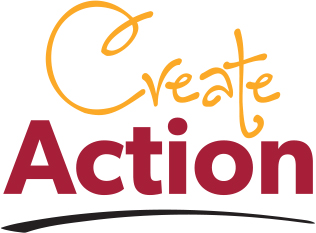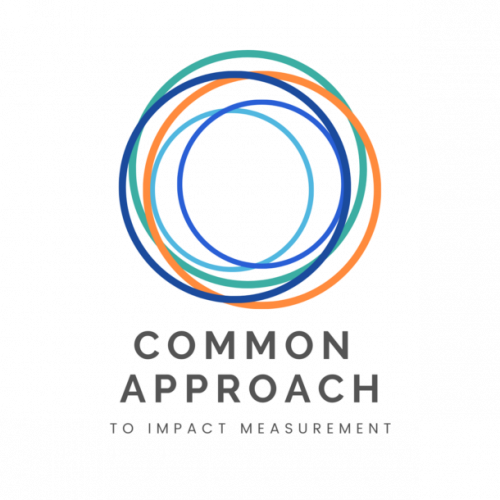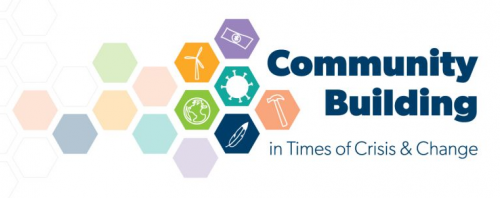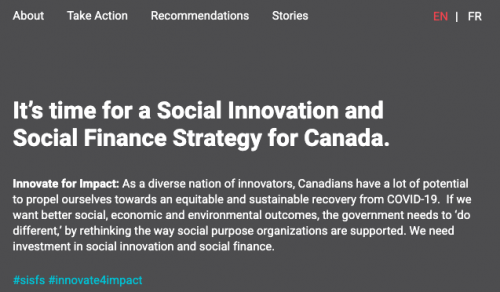As we approach our 2021 Annual General Meeting, we are looking back on 2020.
How do we tell the story of such a year? How do we honour the pain and grief experienced the world over, while at the same time celebrating the solidarity, mutual aid, and resilience that were born from the turmoil? How do we leverage our collective power to protect and nurture CCEDNet members, communities, and life itself — all while caring for ourselves?
These questions guided CCEDNet’s actions last year, and we are tremendously proud of what staff, members and partners have accomplished together.
Capacity Building

- In partnership with the National Association of Friendship Centres and Social Research and Demonstration Corporation, we launched CreateAction, a program that will ultimately place 100 youth facing barriers to employment in internships with social impact organizations and Friendship Centres across Canada.
- In addition to regular pro bono matchmaking work (which moved online), our Spark service took over the social enterprise development services that were previously provided under the Social Enterprise Manitoba program.
- We led a rebranding and website redevelopment project for S4ES and welcomed Co-operatives and Mutuals Canada to the partnership.
- We formalized a partnership with Social Economy Through Social Inclusion (SETSI) to advance African-Canadian priorities in the social economy and inform CCEDNet’s efforts to center the lived experience of African-Canadians.
- CCEDNet has been an active partner in a Solidarity Working Group, co-ordinated by SETSI, of social innovation and social finance stakeholders committed to rooting out racism, colonization, and exclusion.
- Building on a commitment to intersectionality in our new Theory of Change, CCEDNet staff and Board continued learning on anti-racism, anti-oppression, and collective liberation.
 As part of the Investment Readiness Program, SETSI delivered an incubator for 15 African-Canadian social entrepreneurs and we’re working together to bring these perspectives more strongly to the federal table, including co-presenting a Knowledge Event to staff at Employment and Social Development Canada about how the government can more effectively work with African-Canadian communities.
As part of the Investment Readiness Program, SETSI delivered an incubator for 15 African-Canadian social entrepreneurs and we’re working together to bring these perspectives more strongly to the federal table, including co-presenting a Knowledge Event to staff at Employment and Social Development Canada about how the government can more effectively work with African-Canadian communities.- We re-designed the Community Leadership Program for virtual delivery and resumed training for community agencies seeking to strengthen the leadership and learning of their staff.
- Aiming to elevate awareness of community investment models like community investment co-ops and CEDIF’s within the federal Investment Readiness Program and elsewhere, we partnered with the BC Community Impact Investment Coalition, Co-operative Enterprise Council of New Brunswick, and Conseil de la coopération de l’Ontario to convene two regional communities of practice, a national stakeholder group, and complete several reports and capacity-building projects.
 In Atlantic Canada, we launched Business Recovery, Stabilization, and Succession, an action research project with Leading Edge Community Development Consultants Co-operative, Co-operative Enterprise Council of New Brunswick, and CDR-Acadie began exploring how to support retiring or struggling local businesses through succession to collective enterprise. Alongside this work, a stakeholder analysis of key local innovators and early adopters for this approach is being developed.
In Atlantic Canada, we launched Business Recovery, Stabilization, and Succession, an action research project with Leading Edge Community Development Consultants Co-operative, Co-operative Enterprise Council of New Brunswick, and CDR-Acadie began exploring how to support retiring or struggling local businesses through succession to collective enterprise. Alongside this work, a stakeholder analysis of key local innovators and early adopters for this approach is being developed.- The Local Organizing for Fair Economies community of practice held six sessions exploring how local organizing principles and approaches create more sustainable, fair and inclusive economies.
Building Ecosystems

- Across BC, Alberta, Manitoba, and Ontario, we partnered with provincial leaders to convene stakeholders, advocated for enabling policy change, and raised practitioner needs in the federal arena around community-led social innovation and social finance. This included a new social economy working group hosted by BC Co-op Association, the emerging AB Seed group, CCEDNet-Manitoba, and the Ontario Social Economy Roundtable.
Research and Innovation

- We continued our work advancing the Common Approach to Impact Measurement, and our Executive Director Mike Toye was appointed to the initiative’s first official governance group.
- Research continued on the Work Integration Social Enterprises research project, which will wrap up in 2022.
- The Community Data Program developed an interactive COVID community recovery dashboard and began a new Solutions Lab on Community Decision-Making Tools for Housing Issues.
Membership Engagement
 We continued developing our Theory of Change, presenting a draft version to members at the 2020 AGM and refining the document based on feedback.
We continued developing our Theory of Change, presenting a draft version to members at the 2020 AGM and refining the document based on feedback.- We launched a quarterly member communiqué, packed with insights and opportunities for members, that generates high open rates and click through rates. We also created English-language and French-language Google Groups to enable CCEDNet members to exchange ideas and resources.
- We hosted the Manitoba Gathering online for the first time, packing the event with high-impact presentations, intimate conversations, and musical performances. Over 300 people attended.
Communications

- We published several multi-channel communications campaigns in response to the urgent events through the year, including Statement of Solidarity with Wet’suwet’en, Strengthening our Connections in Tender Times, and No Racial Justice Without Economic Justice: Black Lives Matter
- Based on Cate Friesen’s Story Source trainings, we integrated storytelling into our fundamental communications strategy.
- We laid the groundwork to embark on a massive overhaul of the CCEDNet website, a project we have since launched.
Public Policy

- We hired Raissa Marks, our Government Relations Director, thanks to an investment by five leading members, drastically increasing our capacity for government relations, policy, and advocacy work.
- We launched the Strengthening Community Economies Policy & Advocacy Capacity-Building Series for CCEDNet members.
- CCEDNet’s Policy Council updated our National Policy Priorities and the CCEDNet-convened People-Centred Economy Group prepared recommendations for the recovery and post-COVID-19 economy on behalf of the social economy sector. In support of these policy priorities and recommendations, many meetings were held with MPs, Ministers and ministerial staff, and civil servants, and countless letters were sent advocating for our recommendations.
- We advocated for legislation to implement the United Nations Declaration on the Rights of Indigenous Peoples following an AGM resolution calling for such action.
 We organized a public advocacy campaign to advocate for a federal Social Innovation and Social Finance Strategy, which resulted in 68 emails being sent to at least 50 different MPs.
We organized a public advocacy campaign to advocate for a federal Social Innovation and Social Finance Strategy, which resulted in 68 emails being sent to at least 50 different MPs.- CCEDNet Manitoba convened the We Want to Work coalition, advocating for a social procurement policy at the City of Winnipeg and laying the groundwork for future policy progress.
We remain committed to building on all these accomplishments by strengthening the approach laid out in CCEDNet’s new Theory of Change: an approach that is intersectional, intersectoral and collaborative, led by people and communities who are experts in their own lives.
Many thanks to the members, funders and staff who make this work possible.
Join us by becoming a member, or support the movement for sustainable, equitable and inclusive communities by making a donation.





